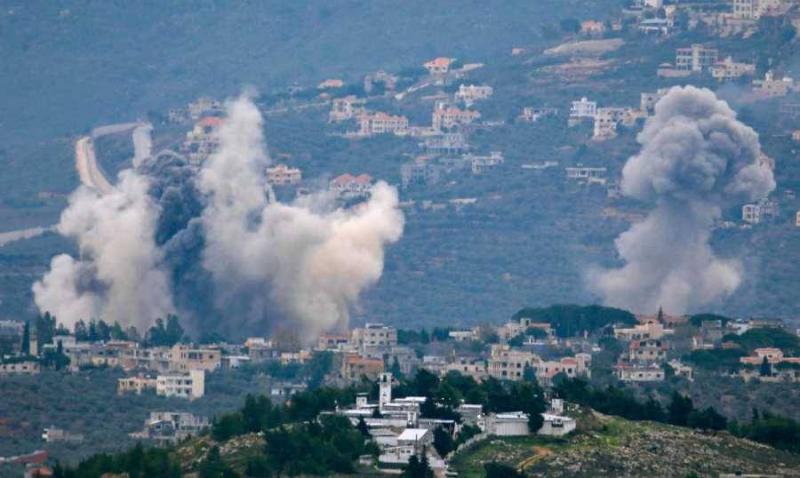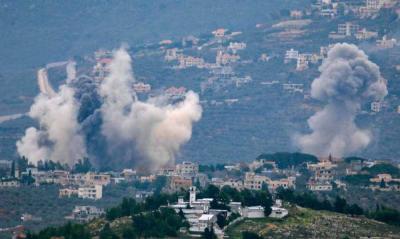Although the signs of the ongoing advanced attempt to establish a new truce or the beginnings of a settlement to cease fire in Gaza are still clouded with doubts and uncertainties regarding its success, international diplomatic atmospheres, particularly from Western and Arab countries, are approaching this effort with high hopes for a window that could allow for its achievement in the near future. Consequently, based on these atmospheres, which pragmatically engage with the ground reality in southern Lebanon, where Hezbollah has consistently reiterated its equation linking the situation on the southern front with the course of the war in Gaza, it is no longer a secret that there are intense diplomatic winds blowing into Lebanon. This began with several European foreign ministers, passed through British Foreign Secretary David Cameron's visit two days ago, and will continue with French Foreign Minister Stéphane Séjourné on Tuesday. Another significant development may be the imminent visit of the American envoy, the President's Senior Adviser for Energy Amos Hochstein, who will return to Tel Aviv early next week and may then head to Beirut.
French Foreign Minister Stéphane Séjourné is scheduled to arrive in Beirut next Tuesday as part of his first tour of the region since his appointment as Foreign Minister in Gabriel Attal's government, which will also include visits to Egypt, Jordan, Israel, and Ramallah, according to "An-Nahar." Based on available serious information, the visits by foreign ministers and Western envoys do not differ in any substantial matter regarding Lebanon; ceasing military confrontations between Israel and Hezbollah, based on the international regulation represented by UN Resolution 1701, is a global demand that does not face opposition among any international groups, even those that are conflicting regarding the war in Gaza and the situation in the Middle East.
While the demand for Hezbollah's withdrawal to north of the Litani River remains the central point in any proposal to revert matters to the state prior to October 8, the date when field confrontations began at the Lebanese-Israeli border following the Al-Aqsa Flood operation in the Gaza envelope, the current diplomatic push suggests that the countries involved in efforts to stop the Gaza war and the confrontations on the southern front in Lebanon are motivated by new elements that have encouraged them to act in a race against time. The balance of probabilities appears to be evenly poised between negative and positive outcomes for establishing a truce in Gaza, which simultaneously allows for a strong push to halt confrontations at the Lebanese-Israeli border.
Hence, renewed impressions prevail concerning the potential for diplomacy to play a significant and expansive role in the short upcoming period, viewed as a critical time frame measured in the next few days to determine the clear direction of events, including in Lebanon. Yesterday, the spokesman for the French Foreign Ministry expressed concerns about the situation at the border between Israel and Lebanon, indicating that the minister would emphasize the need for a diplomatic solution between Lebanon and Israel during his dialogues. He reiterated warnings to all those betting on escalating tensions in the region, stating, "As you know, France is deeply concerned about the situation at the border between Lebanon and Israel, and we will remain active and continue our efforts so that the situation does not worsen, as regional stability is an essential part of the equation. A sustainable political solution cannot be reached without regional stability." He added that during his visit to Lebanon, the minister would stress the need for a diplomatic solution between Lebanon and Israel and express a message calling for restraint from all parties because it is important to avoid any escalatory stance in the region, especially in Lebanon. He noted that the opportunity had indeed been given to the President to express this in previous times and that this message would be reiterated.
He confirmed the commitment to maintaining the safety of UNIFIL, ensuring it can perform its full role, and he added, "We are still working based on the implementation of UN Resolution 1701 to achieve peace and security in this area," stating these points would constitute the message the minister would convey to Lebanese authorities during his visit to Beirut. He clarified that the minister would not meet with Hezbollah officials, emphasizing that the party is aware of the French positions.
However, Israel has responded to these diplomatic atmospheres by continuing its threats. According to "An-Nahar," Israeli Defense Minister Yoav Galant stated that Israel would not cease fire with Hezbollah on the northern front even if an agreement regarding the war in Gaza were reached. During a tour of the Lebanese border at Mount Hermon, he remarked, "If Hezbollah thinks that when there is a ceasefire in Gaza, we will cease fire on Lebanon, they are very mistaken. As long as we have not reached a situation where residents of the north can return safely, we will not stop. When we reach that point, whether through a settlement or militarily, we will be able to exercise calm."




